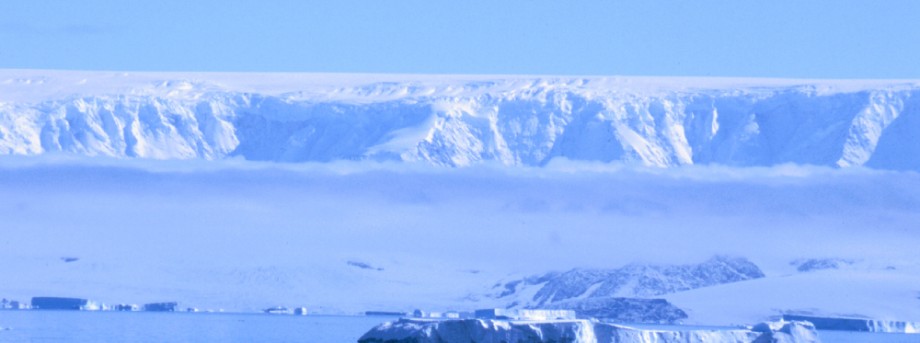The University of Nottingham
 Exchange online
Exchange online
Research Exchange
Tiny fossils hold answers to big questions on climate change

The western Antarctic Peninsula is one of the fastest warming regions on the planet, and the fastest warming part of the southern hemisphere.
Scientists have debated the causes of this warming, particularly in light of recent instrumental records of both atmospheric and oceanic warming from the region. As the atmosphere and ocean warm, so the ice sheet (holding an equivalent of five metres of global sea level rise, locked up in ice) becomes vulnerable to collapse.
Now research involving The University of Nottingham and led by Cardiff University has used a unique 12,000 year long record from microscopic marine algae fossils to trace glacial ice entering the ocean along the western Antarctic Peninsula. The results have been published in Nature Geoscience.
Dr George Swann from The University of Nottingham’s School of Geography said: “The results from this study reveal the processes that have regulated ice-sheeting melting along the west Antarctic Peninsula over the last 12,000 years. By analysing microscopic marine algae preserved in the sea-floor we have been able to reconstruct past changes around the Antarctic coastal margin, information which will help us understand modern day changes in the region.”
The study has found that the atmosphere had a more significant impact on warming along the western Antarctic Peninsula than oceanic circulation in the late Holocene (from 3,500-250 years ago).
This was not the case prior to 3,500 years ago, and is not the case in the modern environment. The study has also shown that this late Holocene atmospheric warming was cyclic (400-500 year long cycles) and linked to the increasing strength of the El Niño — Southern Oscillation phenomenon (a climate pattern centred in the low latitude Pacific Ocean) demonstrating an equatorial influence on high latitude climate.
Dr Jennifer Pike, School of Earth and Ocean Sciences said: “Our research is helping to understand the past dynamic behaviour of the Antarctic Peninsula Ice Sheet. The implications of our findings are that the modern observations of ocean-driven warming along the western Antarctic Peninsula need to be considered as part of a natural centennial timescale cycle of climate variability, and that in order to understand climate change along the Antarctic Peninsula, we need to understand the broader climate connections with the rest of the planet.”
Ice derived from land has a very distinctive ratio of oxygen isotopes. This research is the highest resolution application in coastal Antarctic marine sediments of a technique to measure the oxygen isotope ratios of microscopic marine algae fossils (diatom silica). When a large amount of glacial ice is discharged into the coastal ocean, this alters the oxygen isotope ratio of the sea water that the marine algae are living in. This creates a clear imprint in the fossils that reveals the environmental conditions of the time. The scientists used the oxygen isotope ratio of the fossils to reconstruct the amount of glacial ice entering the coastal ocean in the past 12,000 years, and to determine whether the variations in the amount of ice being discharged were the result of changes in the ocean or atmospheric environment.
Professor Melanie Leng, from the British Geological Survey and Chair of Isotope Geosciences in the Department of Geology, University of Leicester, said: “Technologically the analysis of the oxygen isotope composition of diatom silica is extremely difficult, the British Geological Survey is one of very few research organisations in the world that can undertake this type of analysis. For this research project the methodology has been developed over the last five years with the specific aim of investigating the different amounts of melting in the polar regions. It’s fair to say we are world leading pioneers in this technique.”
The research is co-authored with Cardiff University by the universities of Nottingham, Leicester and the British Geological Survey and was funded by the Natural Environment Research Council (NERC).
Leave a Reply
Other

Top prize for quantum physicist
A University of Nottingham physicist has won a prestigious medal from the Institute of Physics for […]

Zero carbon HOUSE designed and built by students comes home
Design and construct a low cost, zero carbon, family starter home, transport it to Spain, build […]